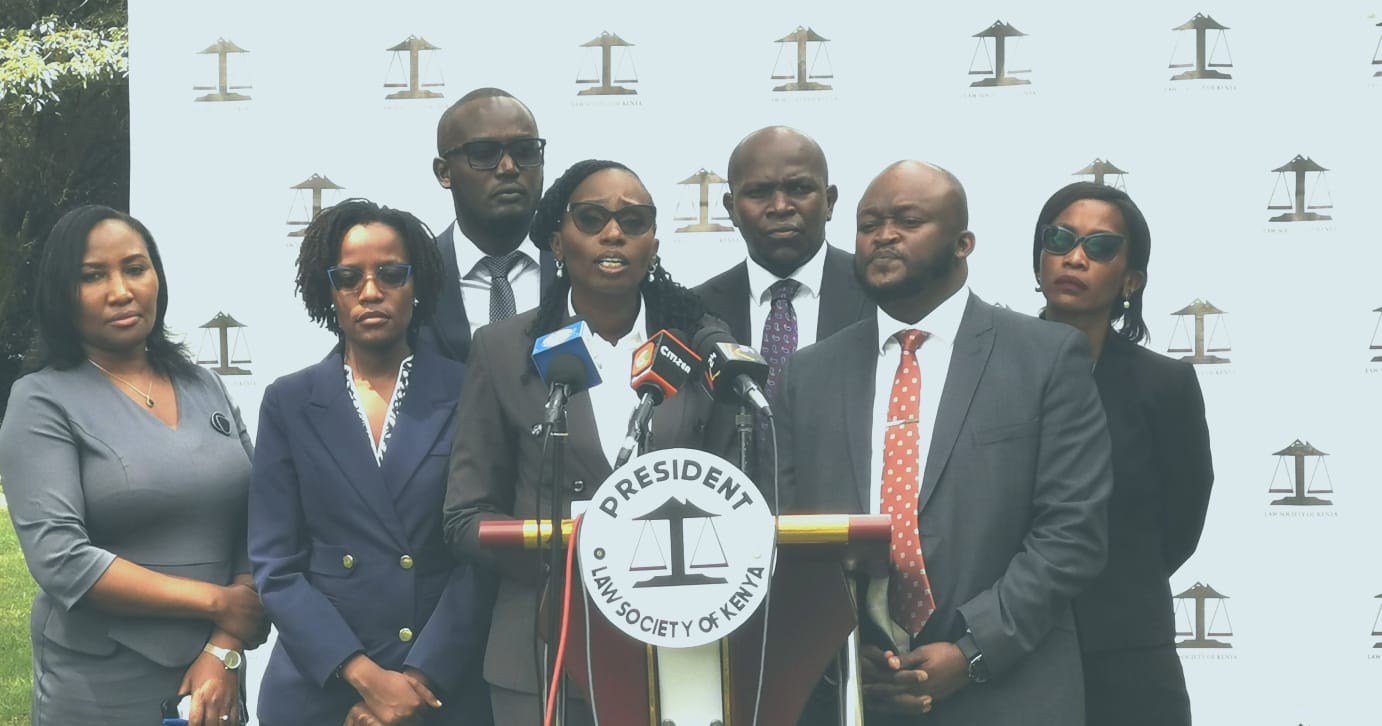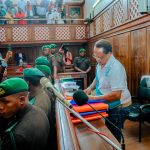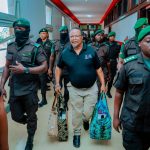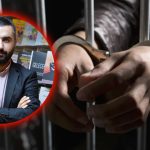The Law Society of Kenya (LSK) has accused the National Police Service of collaborating with armed gangs to violently suppress peaceful protesters during the June 17 nationwide demonstrations. Addressing the media in Nairobi on Wednesday, the LSK described the events as a “well-orchestrated and brutal crackdown” that reflects a dangerous breakdown of law enforcement ethics and constitutional order.

According to the LSK, these groups were “militia-like” and acted in concert with law enforcement, targeting not only protesters but also innocent bystanders. The Society cited video and photographic evidence showing armed goons being dropped off from police vehicles and escorted by motorcycles carrying weapon-wielding riders, before launching coordinated attacks on civilians.
“The police, instead of upholding law and order, watched on and even participated in the thuggery,” said LSK President Faith Odhiambo. “We have seen images of police officers looting, making away with laptops from shops broken into by the same goons they enabled. What is unfolding is an anarchical act of impunity that must be stopped.”
In its statement, the Society also expressed outrage over the shooting of an unarmed hawker in Nairobi, who was gunned down at close range by a police officer despite not being part of the protests. Footage of the incident, now viral on social media, shows the officer calmly walking away as the victim lay critically injured. The hawker was rushed to Kenyatta National Hospital and remains in intensive care.
“This was not just an act of recklessness; it was premeditated murder,” said Odhiambo. “Such conduct is precisely why Kenyans are taking to the streets. The police cannot respond to calls for reform by committing more atrocities.”
The LSK warned that the growing complicity between the police and criminal gangs risks eroding public confidence in state institutions and could spark a constitutional crisis. The Society is calling for immediate action from the National Security Council, the National Police Service Commission, and the Independent Policing Oversight Authority to investigate all allegations of excessive force, extrajudicial killings, and criminal collusion by law enforcement.
The Society also urged Kenyatta National Hospital and other health institutions to establish transparent victim reporting systems to keep the public informed on the status and treatment of individuals injured in police-related incidents. Additionally, it called on the Office of the Director of Public Prosecutions to prioritise the prosecution of rogue officers and treat these cases as urgent matters of national security.
“As lawyers, we are prepared to pursue every avenue for justice. We will not allow our country’s security agencies to be hijacked by impunity and lawlessness,” said Odhiambo.
The protests were sparked by the controversial death of teacher Albert Ojwang while in police custody. They quickly turned chaotic in several towns, with at least 17 casualties reported across the country. However, what shocked observers most was the presence of armed civilians posing as vigilantes, who operated alongside police officers to attack demonstrators, loot shops, and instill fear among citizens.






